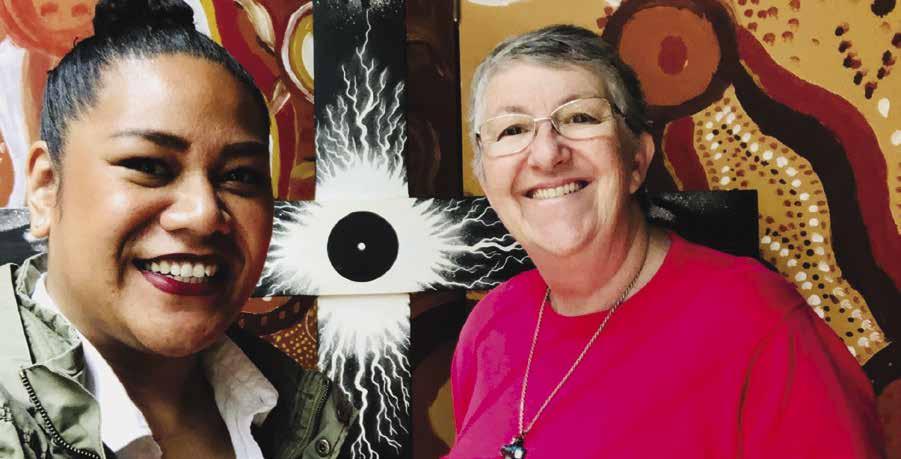Solomon Islands Creating a healthy and resilient community through water, sanitation and hygiene
Photo: Julianne Hickey, Caritas Aotearoa NZ
Mostyn and Jean cultivate sweet potato and cabbage in their hillside garden in a remote village on the northern tip of Malaita, in the Solomon Islands. Now the community enjoys ready access to clean and safe water as well as improved sanitation.
Jean and Mostyn in front of one of the new water tanks in their village. Photo: Caritas Australia Solomon Islands
The garden produces enough to feed their family of seven and sell the excess in the market, but watering the garden is an effort. Three times a day Jean collects water in jerry cans and plastic containers from an unprotected spring and hauls the water back up the hill to their village. The lack of a readily available and safe water source means that daily hygiene and basic sanitation is a challenge. With no other option, the family has always used bush toilets, but lack of access to proper toilets can lead to contaminated food and water supplies and puts the whole community at increased risk of disease and infection. More than 70 per cent of the population in the Solomon Islands does not have proper sanitation and there are no sewerage systems. This has deadly consequences: water and sanitation related diseases are one of
the leading causes of death for children under five in the Solomon Islands. Together with the support of Caritas Australia, the village was able to improve its sanitation by building simple, dry-pit toilets and “tippy-taps” for handwashing—a simple device using a bucket. After the toilets were completed, the whole community, including women and villagers of all ages, pitched in together to carry bricks, gravel and cement from the bottom of the hill to construct water tanks for the village. The community applied their new technical skills from building toilets to ensure that their water supply would be safe and clean for future generations. Now the community enjoys ready access to clean and safe water as well as improved sanitation. “When Caritas stepped in for support, we gained knowledge about good sanitation,” says Jean. “This has helped prevent our kids from getting sick with diarrhoea and other related diseases.”
Program achievements Seven rainwater catchment systems and tanks have been constructed, providing drinking water access to all households in the community. The villagers have constructed 14 toilets, including a mobility toilet for the elderly and those living with disabilities, a women-only toilet and a community toilet. This program has been supported by public donations.
12 BRINGING HOPE IN EMERGENCY



















